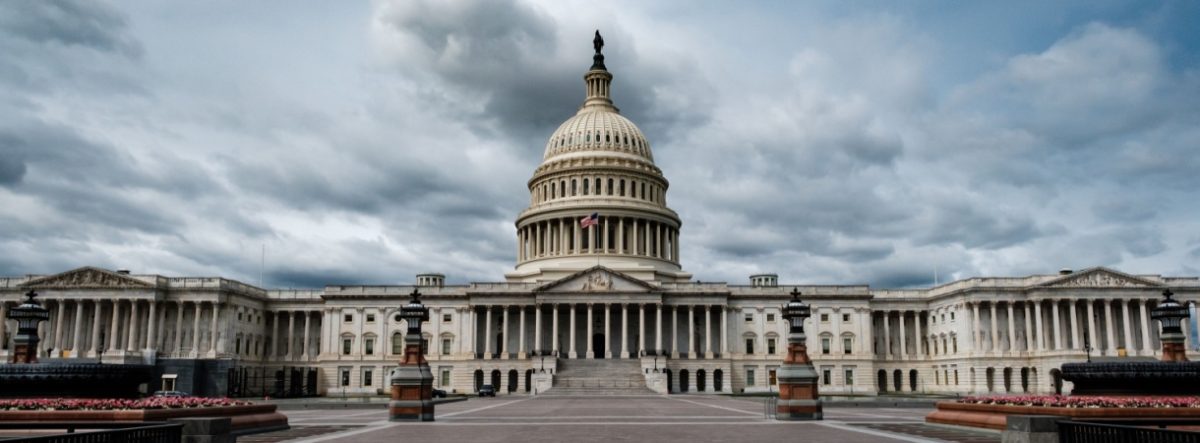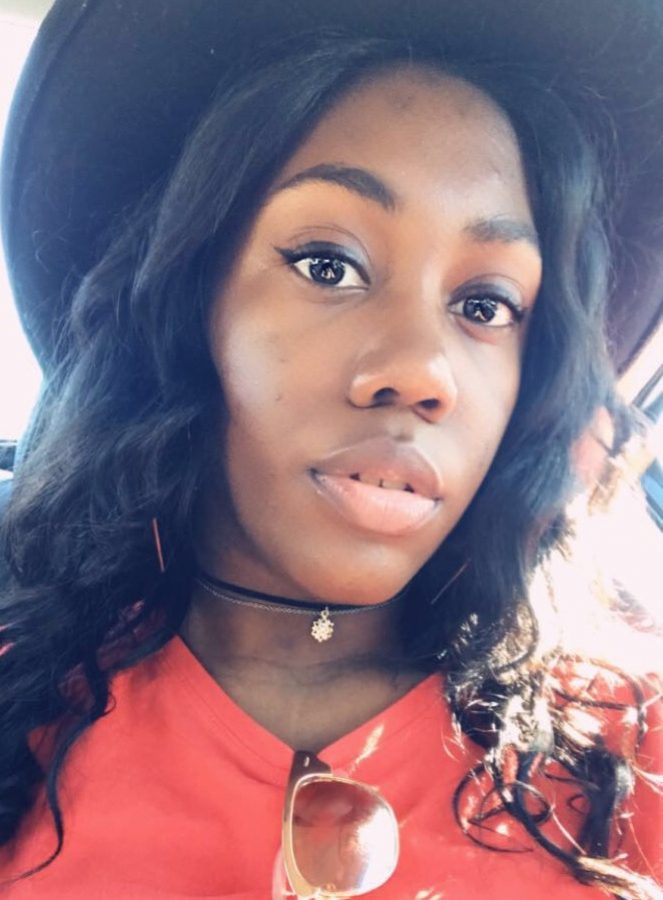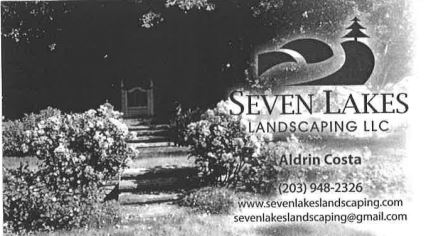Senior Jasmin Gotch wins Wordfest 2018
Snow, Miyazato also place
Senior Jasmine Gotch is this year’s winner of the Wordfest slam, performed April 14 in the auditorium.
April 22, 2018
Jasmine Gotch punctuated her winning Wordfest 2018 slam performance by telling the audience that her the verse was not just another “powerful black woman” poem. But it was a poem written by a “powerful black woman.”
Judges Michael Burnett, Melissa Teel and Tom Ross were unanimous in naming Gotch, a senior, the winner of this year’s popular two-day event, Wordfest 2018, that culminates in a slam contest.
Sophomore Laura Snow placed second for “Who We Are” and junior Vincent Miyazato placed third for “Fathers.”
The 8th period audience on April 13 — the day before Spring Break started — was treated to about a dozen performances on topics ranging from an absent mother to isolation in high school. The judges commended all of the participants for their level of writing and performing.
Although she wasn’t prepared for an encore performance of her poem about the scourge of Public Displays of Affection going on in the hallways, English teacher Deb Stence did stop by the lectern to explain the genesis of the poem: being subjected to seeing way too much necking in the hallways during pass. She lovingly and maternally warned the audience that if the administration wouldn’t put a stop the PDA’s, she would.
The event was organized by The Nutmegger staff, the Word Warriors Club, and its advisers, Danielle Costello and Casey Hanrahan.
Here is Gotch’s winning poem:
“Being…”
Being a black girl doesn’t mean having a curvaceous banging body.
Being a black girl doesn’t mean we talk fast and snap our fingers and roll our necks and roll our eyes.
Being a black girl doesn’t mean that we have no interest in furthering our education.
Being a black girl means that we do not take no for an answer.
Being a black girl means that we take pride in who we are. We take pride in our beautiful tresses, from the kinkiest curl all the way down to the loosest wave; our beautiful melanin and beautiful history. As beautiful black women.
Being a black girl is not reduced to “dark skin,” “light skin,” “brown skin” or “albinism.” Whether you’re a Lupita N’yongo or Tracee Ellis Ross. A Winnie Harlow or a Ava Duvernay. Black is beautiful.
My black is beautiful.
Your black is beautiful.
Her black is beautiful.
Black women are not costumes, but cultured. We are not trends, we are constants. Act like it. Black women are deemed as either the victim or the villain and we are neither. We are our own heroes.
We are already born with three strikes against us: one for being a woman, two for being black, and three for growing up with “angry black woman” stereotype. And you know what? That makes me angry. Because being a black woman is not a bad thing at all. And no one, not even a man who looks like he bathes in Cheeto dust will ever tell us different. No one.
And if I were to have a daughter one day, I would raise her with the mindset that she herself is enough. That she doesn’t need to be ashamed of her black beauty, she doesn’t need to be ashamed of her 3c curls and shrinkage. And I would never want her to feel like she is not enough, like she is not worthy of the world’s attention because of the color placed upon her skin.
In being a young black woman in this world, I have changed my hair more times than I have heard Darren Gross, Elliot O. Rodger, Adam Lanza, Dylan Roof, Nikolas Cruz called a murderer. I have heard “I don’t see color” more times than I have heard justice for Sandra, Michael, Alton, Philando, Tamir, Trayvon. More times than comfort and support has been brought to the families of the 26 that died — NO were murdered, more times than gun control has been discussed since the seventeen were shot in cold blood at a high school. I have seen more suicides of young black girls bullied for the way their hair looks than I have seen steps taken to get an impeachment for the man you call your “president.” I’ve seen blackface done by white kids who thought they were being funny more times than I’ve seen the police and the government treat my people with respect.
But being a black girl is the problem, right?
And no this is not another “powerful black woman” poem, this is a poem written by a powerful black woman.



















